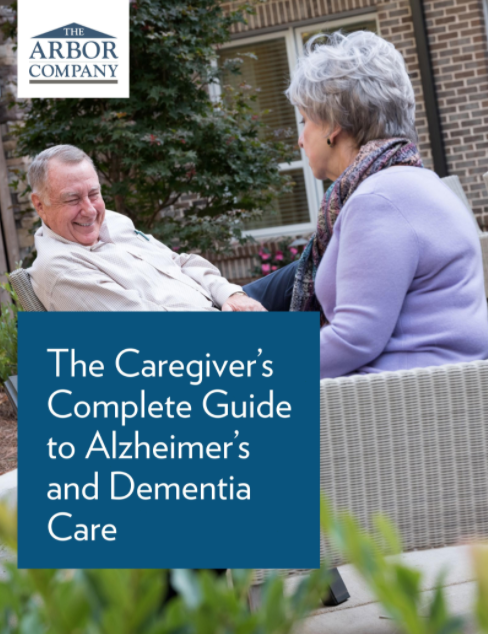Expert Memory Care Charlotte: Enhancing Lifestyle for Those with Memory Loss
Expert Memory Care Charlotte: Enhancing Lifestyle for Those with Memory Loss
Blog Article
Reliable Dementia Care Methods for a Better High Quality of Life
In the realm of dementia treatment, the implementation of efficient strategies is critical for improving the quality of life for both individuals influenced by the disease and their caregivers. Recognizing the distinctive stages of mental deterioration permits for customized interventions that attend to the evolving needs of clients-- from advertising cognitive interaction in the early stages to ensuring dignity in late-stage treatment.
Comprehending Mental Deterioration Phases

In the beginning, people may experience mild memory loss and trouble with familiar tasks. Care methods should concentrate on keeping self-reliance and providing cognitive excitement. The center phase is defined by raised complication, trouble recognizing liked ones, and damaged judgment. Throughout this phase, caretakers must apply organized routines and guarantee a safe setting. Lastly, in the late stage, individuals might shed the ability to need and communicate support with daily tasks. Here, compassionate care is crucial, highlighting convenience and dignity.
Acknowledging these phases allows caretakers to adjust their approaches and give support that aligns with the individual's present needs, eventually promoting much better management of the problem and improving the total caregiving experience. Understanding mental deterioration stages is as a result a foundational facet of efficient mental deterioration care.
Interaction Techniques
Reliable interaction is a crucial component of dementia care, particularly as the illness advances through its various phases. As cognitive capabilities decline, it ends up being necessary to adapt communication strategies to meet the requirements of individuals with dementia. Using clear, straightforward language is crucial; caregivers ought to avoid complicated sentences and lingo, choosing instead for uncomplicated, concise expressions.
Non-verbal communication plays an equally substantial function. Faces, gestures, and tone of voice can share heat and understanding, often enhancing verbal messages. Keeping eye get in touch with and an open pose fosters a feeling of connection and safety, encouraging people with mental deterioration to engage even more totally in conversations.
It is likewise useful to be person and permit sufficient time for reactions. People might need additional time to process details and formulate their ideas. Repeating or rephrasing inquiries might be required if understanding appears lacking.
Last but not least, concentrating on the person's interests and personal background can help with a lot more meaningful communications. Involving in acquainted topics can evoke favorable memories and feelings, further enhancing the interaction experience (charlotte care home). By using these methods, caregivers can significantly boost the top quality of communications, advertising dignity and respect for individuals living with mental deterioration
Developing a Safe Setting
Creating a risk-free environment for individuals with mental deterioration is crucial to promoting their well-being and self-reliance. A properly designed room can considerably decrease the dangers of mishaps and boost the top quality of life for those affected by this problem.
Lighting plays an important role also; using all-natural light wherever feasible and incorporating night lights can help individuals browse their environments securely. Furthermore, identifying spaces and crucial objects can assist memory and positioning, reducing complication and anxiousness.
It is also crucial to produce a familiar setting by individualizing the area with pictures or valued items, which can stimulate favorable memories and a sense of belonging.
Incorporating furniture that is both practical and comfy contributes to an encouraging environment, permitting people to engage in day-to-day activities with convenience. Eventually, a secure setting not only safeguards versus physical threats but also promotes a complacency, which is crucial for the emotional well-being of those dealing with mental deterioration.
Engaging Regimens and activities
Engaging activities and organized regimens are essential components in the treatment of people with dementia, as they advertise cognitive function, emotional security, and social communication. These activities must be customized to the person's interests, capabilities, and phase of cognitive decline. dementia care charlotte. Basic, repeated jobs such as horticulture, arts and crafts, or cooking can offer significant engagement, enabling people to utilize their skills while promoting a feeling of success
Establishing a daily routine helps create a predictable atmosphere, which can reduce anxiousness and confusion. This structure can include assigned times for meals, tasks, and remainder, ensuring a balanced approach to day-to-day live. Including social communications right into these routines, such as group tasks or going to household, further boosts emotional health and fights feelings of seclusion.
In addition, exercises, such as dancing or strolling, not only promote physical health however also promote psychological engagement. Motivating participation in area occasions or assistance groups can provide extra possibilities for socialization. Generally, the assimilation of engaging tasks and structured routines is vital in improving the lifestyle for people with mental deterioration, promoting you can find out more self-reliance and dignity while resolving their dementia care charlotte one-of-a-kind needs.
Supporting Caretaker Health
Taking care of individuals with dementia can be a demanding and emotionally exhausting experience, making it vital to prioritize the wellness of caregivers. Caregivers often encounter high levels of tension, anxiety, and physical fatigue, which can cause fatigue otherwise addressed suitably. To sustain their health, it is important to carry out a complex strategy.
First, supplying caretakers with accessibility to education and sources can encourage them with methods to take care of everyday obstacles. Assistance teams, both in-person and online, use a platform for sharing experiences, promoting a sense of neighborhood, and reducing feelings of seclusion. Furthermore, respite treatment solutions make it possible for caretakers to take required breaks, permitting them time to participate in and recharge to their very own wellness demands.
Furthermore, encouraging caretakers to take part in self-care practices-- such as routine workout, healthy and balanced eating, and mindfulness-- can dramatically improve their durability. Advertising open communication regarding their feelings and difficulties with relative or experts additionally aids relieve emotional concerns.
Final Thought
Finally, effective mental deterioration care approaches encompass a comprehensive understanding of the disease's phases, the application of clear interaction methods, the facility of a risk-free environment, and the promotion of organized regimens and engaging tasks. Furthermore, focusing on the wellness of caretakers is important to maintaining quality care. By incorporating these strategies, the overall lifestyle for individuals with mental deterioration can be dramatically enhanced, promoting a supportive atmosphere that advertises dignity and emotional well-being.
In the realm of mental deterioration treatment, the execution of reliable techniques is essential for boosting the high quality of life for both individuals affected by the illness and their caretakers. By utilizing these methods, caretakers can significantly boost the high quality of communications, original site advertising dignity and respect for individuals living with dementia.

Caring for people with mental deterioration can be a requiring and mentally tiring experience, making it necessary to prioritize the health of caregivers.
Report this page